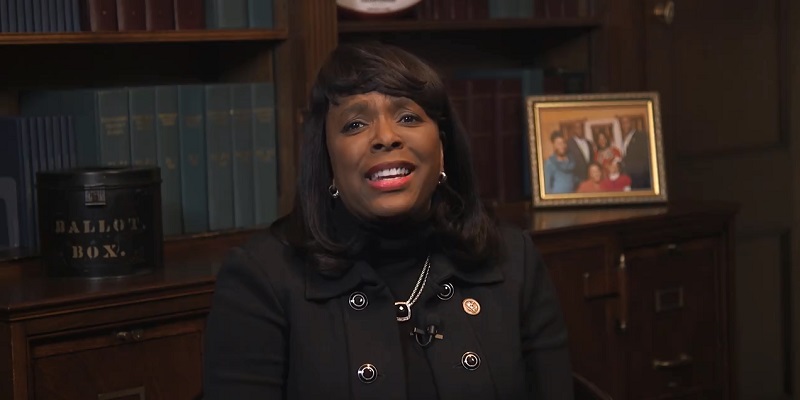Let’s go ahead and put this out there: A Republican can’t win head-to-head against a Democrat in Alabama’s seventh congressional district.
Since becoming a majority-minority district in 1992 to comply with Congress’ 1982 adjustment of the Voting Rights Act, it has been solidly Democrat. The district even survived the South’s transition from conservative Democrat to Republican that showed itself in the 1994 midterm elections.
Nearly two-thirds of the voters in the district are African-American, which typically vote for Democrats. The results of the last five presidential elections bear this out. The Democratic Party nominee has earned at least double the vote tally of the Republican. In the cases of Barack Obama and Hillary Clinton, the vote total was nearly triple that of the GOP for the Democrat.
Since voters went to the polls in the 1992 election in this reconstituted congressional district, only three people have held its seat: former Reps. Earl Hilliard and Artur Davis and its current occupant, Rep. Terri Sewell.
For both Hilliard and Davis, their tenures representing Alabama’s seventh congressional district had abrupt endings.
Hilliard’s demise came at the hands of Artur Davis in the 2002 Democratic congressional primary. Hilliard made himself a target by making an ill-advised trip to Muammar Gaddafi’s Libya despite a federal ban on travel to the rogue North African nation.
Prominent Mobilian and University of South Alabama booster Mayer Mitchell, who at the time had a leadership role in the American Israel Public Affairs Committee (AIPAC), sought to oust Hilliard, who had been a critic of Israel.
With Mitchell’s help and perhaps the aid of a cloud of campaign finance impropriety hanging over Hilliard’s head, Davis defeated Hilliard on a second try in 2002 in a runoff election.
With that win came the rise of Artur Davis, a young Harvard Law School graduate with, at the time, what was thought to be a bright, promising future in the Democratic Party.
For four terms, Davis represented the seventh congressional district at a time when Harvard Law classmate Barack Obama, another African-American was rising to national prominence and ultimately to the White House in 2008.
While Hilliard legislated from the left flank of the Democratic Party, Davis legislated from the right flank. Davis opposed Obama’s health care reform bill, which turned out to be Obama’s signature achievement for his eight years as commander-in-chief.
Political watchers assumed Davis’ politically moderate tack was an effort to position himself as a better candidate for governor in the 2010 election.
It was that 2010 bid that wound up being the roadblock for Davis. He lost the Democratic nod to then-Alabama Agricultural Commissioner Ron Sparks by a whopping 24-point margin. Davis would go on to flirt with a Republican Party candidacy for Congress in northern Virginia. He even spoke at the 2012 Republican National Convention in Tampa.
Ultimately, he wound up back in Alabama and after a failed bid to be the mayor of Montgomery, he still insists that he isn’t done yet.
That brings us to the current occupant, Rep. Terri Sewell. Sewell, who is also a graduate of Harvard Law, in addition to a bachelor’s degree from Princeton and a master’s degree from Oxford.
Sewell is a historical figure in Alabama politics. After a stint practicing law in the private sector, she won the Democratic Party primary for the 2010 Alabama’s seventh congressional district election by finishing first in a crowded. A victory later that year made Sewell the first African-American woman to serve from Alabama in the U.S. Congress.
Since the election of President Donald Trump, Sewell has taken up a more active role in the so-called Resistance movement.
Putin could not have won a more compliant president. The whole reason we set up #NATO was to protect our front line allies from Russian encroachment. This is not the time to let down our guard, or let down our allies.
— Rep. Terri A. Sewell (@RepTerriSewell) July 10, 2018
It’s the 150th birthday of the 14th Amendment. No better way to celebrate Brown v. Board, Loving v. Virginia, and Baker v. Carr than speaking out to #StopKavanaugh #WhatsAtStake pic.twitter.com/i4v1C9RMEY
— Rep. Terri A. Sewell (@RepTerriSewell) July 10, 2018
The most profound question of our time is how we keep our democracy from falling apart in an era of half-baked conspiracy theories, partisanship, and voter suppression @realDonaldTrump https://t.co/C3b8EdOjqp
— Rep. Terri A. Sewell (@RepTerriSewell) June 26, 2018
To her credit, she was instrumental in Doug Jones’ upset win last year over Roy Moore with her get-out-the-vote efforts in her congressional district.
But could this new strident outspokenness against Trump work against her? Could a candidate emerge as Artur Davis had against Earl Hilliard?
If this past is prologue, it is feasible a rival Democrat could emerge in 2020. The long-term prognosis of a Democratic Party fueled by Russia conspiracies and anti-Trump fervor is unknown. If Democrats have a misstep this November and don’t succeed in a national election that the party out of power traditionally does well, there could be a civil war within the Democratic Party.
There’s also the possibility Alabama could lose a congressional seat. If that happens to be the case, Sewell’s district would likely expand to take on some demographic changes. It would still probably be a majority-minority district, but the electorate could be a little more moderate than it is now.
What might that mean for Rep. Sewell? She would still be an odds-on favorite, no question. But that was the way people viewed Hilliard in 2002. In 2002, Hilliard was also running a congressional district that had changed since the prior election.
Birmingham Mayor Randall Woodfin or even Tuscaloosa Mayor Walt Maddox, assuming he isn’t governor, could be such candidates that would be formidable opponents for Sewell in a Democratic primary.
While we still need to get through the 2018 election cycle, a lot of what happens nationally in the November elections will set the country up for 2020, and that could include Alabama’s seventh congressional district.
@Jeff_Poor is a graduate of Auburn University and is the editor of Breitbart TV.












